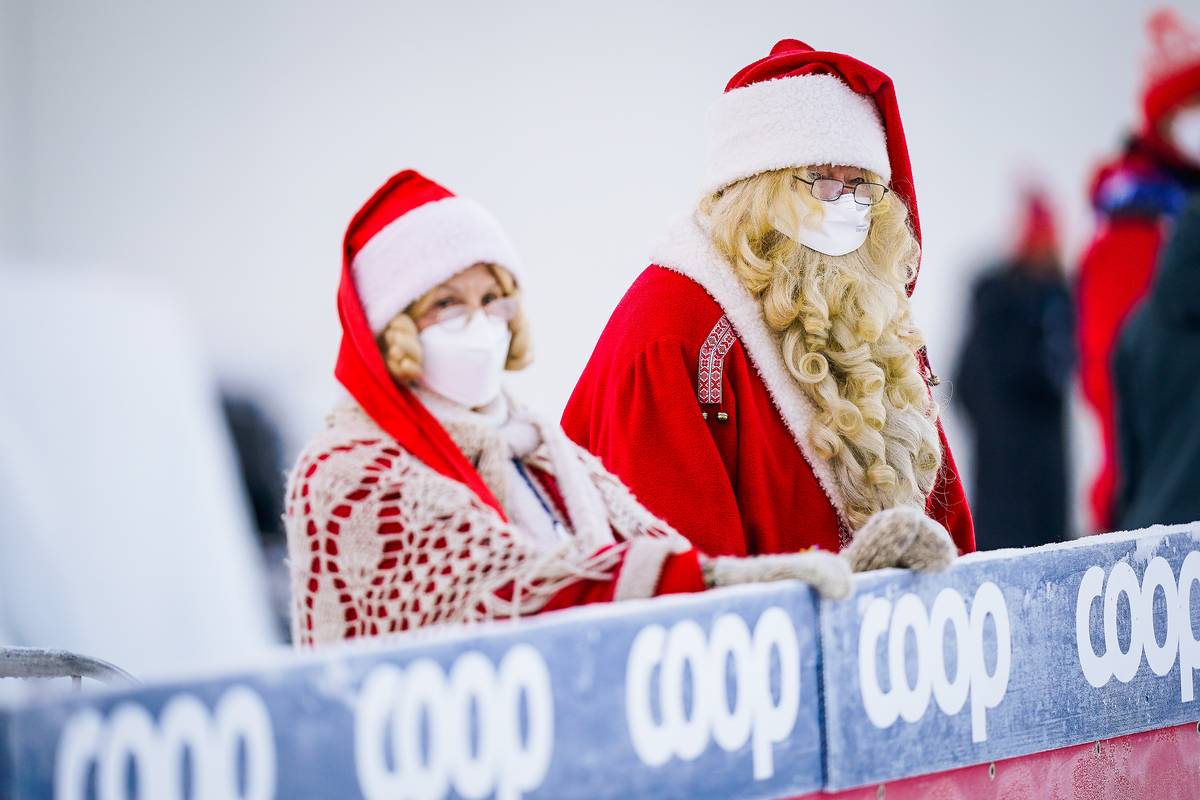
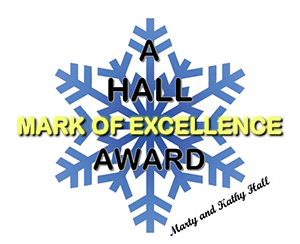 This World Cup coverage is made possible through the generous support of Marty and Kathy Hall and the A Hall Mark of Excellence Award. To learn more about A Hall Mark of Excellence Award or to learn how you can support FasterSkier’s coverage please contact info@fasterskier.com.
This World Cup coverage is made possible through the generous support of Marty and Kathy Hall and the A Hall Mark of Excellence Award. To learn more about A Hall Mark of Excellence Award or to learn how you can support FasterSkier’s coverage please contact info@fasterskier.com.
By Ryan Sederquist
If Friday’s sprint signaled a potential changing of the guard, with 22-year old Alexander Terentev displacing Johannes Høsflot Klæbo atop the podium, the men’s 15-kilometer interval start classic represented a return to normalcy. Racing in perhaps his best event, Finland’s Iivo Niskanen collected his fourth Ruka World Cup victory and sixth total World Cup win, skiing the fastest time in today’s stage of the Ruka Triple.
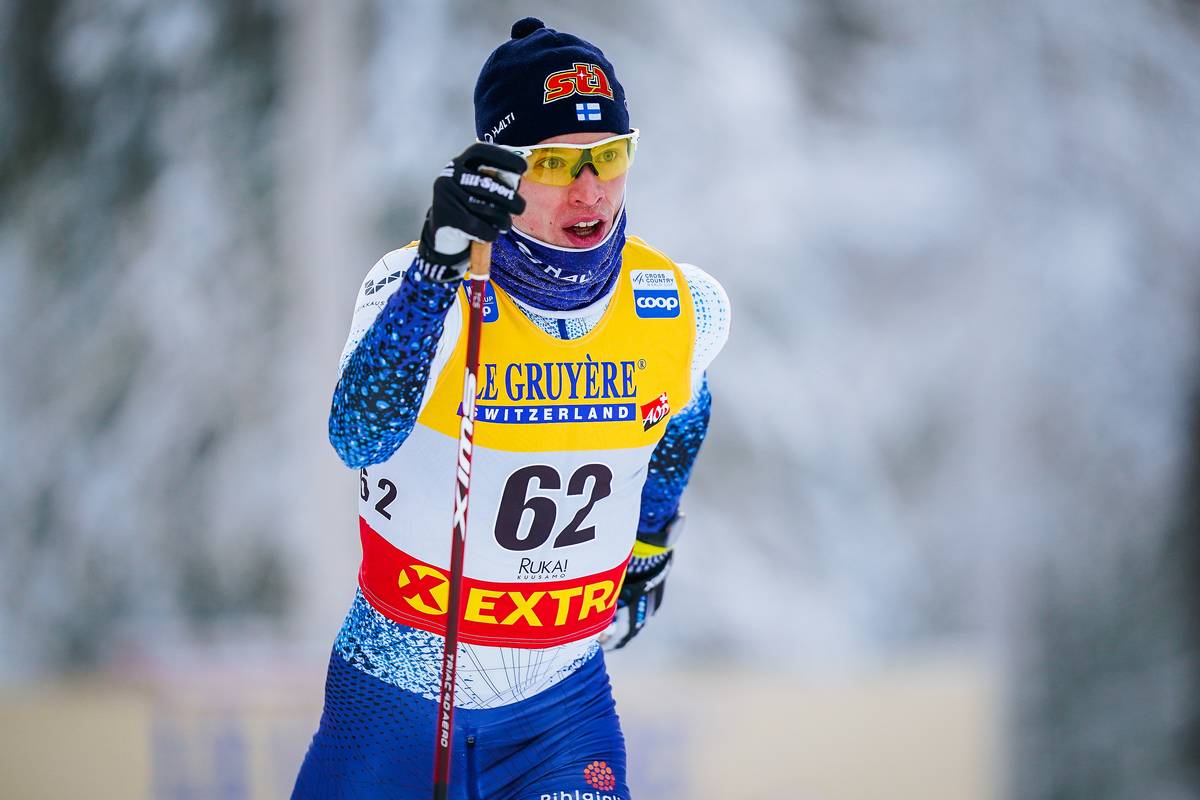
Of Niskanen’s five World Cup wins, four have come in Finland and all have been at the 15-kilometer distance. His time of 33:08.6 was 8.3 seconds ahead of second-place finisher Russia’s Alexey Chervotkin and 14.1 seconds ahead of Alexander Bolshunov, who took third.
As fans have grown accustomed, aside from Niskanen, the rest of the top ten was littered with only Norwegians and Russians. However, shortly thereafter, Canada’s Antoine Cyr finished in a notable 11th place, just in front of former World Champion Hans Christer Holund.
Racing under clear skies on cold, hard-packed conditions, the -17.0 Celsius (about 1.4 degrees Fahrenheit) temperatures seemed only to aid the gritty Niskanen as he attacked the three-loop course in his native country. Other than being .4 seconds back from France’s Richard Jouvre at the 1.1-kilometer checkpoint, Niskanen came through every split ahead of his competitors.
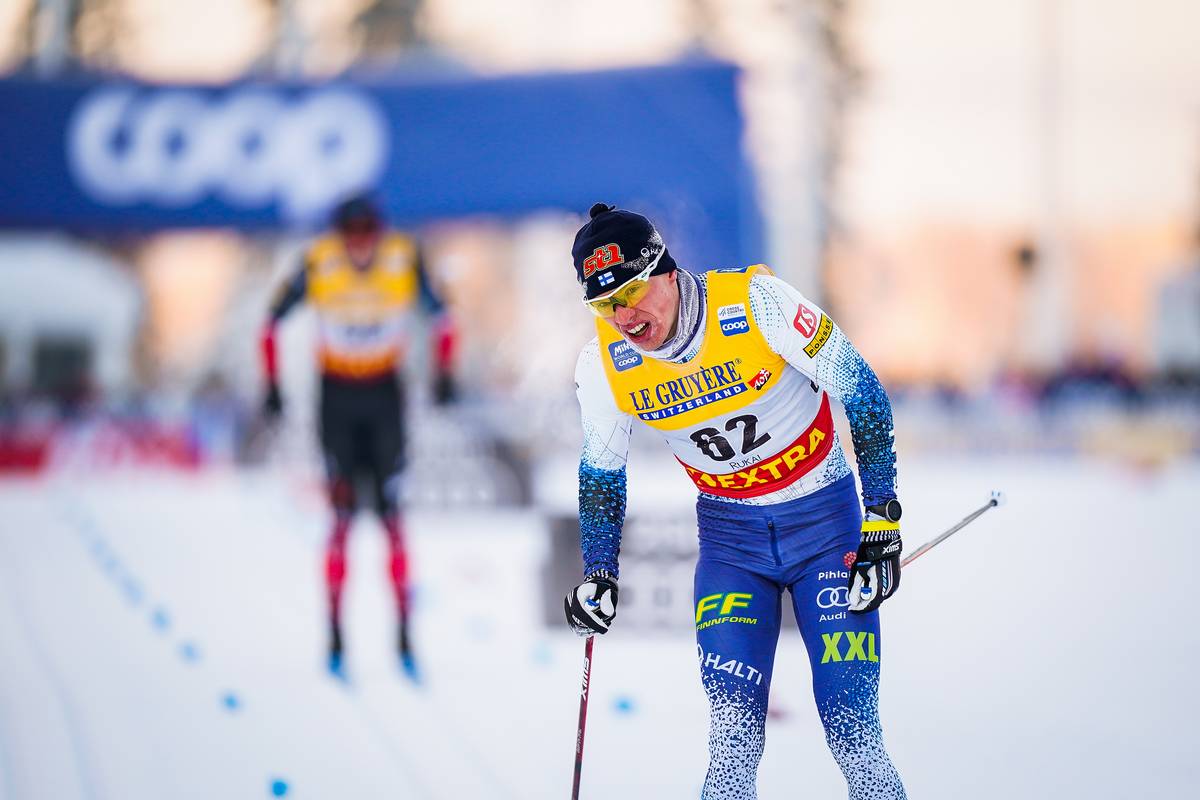
“It can’t get any better. This is a great feeling,” Niskanen told FIS reporters after the race. “Beautiful day, really nice conditions even though it’s quite cold,” he said, visibly struggling to get his speaking muscles to cooperate in the frosty air.
“I’m very happy about this kind of start of the season. Service team did everything great. Great speed, great kick, perfect start.”

While Niskanen’s and Chervotkin’s split positions never wavered, the battle for the third podium spot seemed up for grabs until late. Bolshunov, who has won the distance World Cup in each of the last three seasons, came through the 8.1-kilometer checkpoint in second place. At 10-kilometers, he had slid to fifth, falling behind teammate Sergey Ustiugov and Norwegian Erik Valnes. While that triplet was separated by just a few tenths of a second, Emil Iversen, the only male skier to have won at least one World Cup distance event in each of the past six seasons, and Ivan Yakimushkin loomed within striking distance, sitting just 4.4 seconds back from Bulshonov.

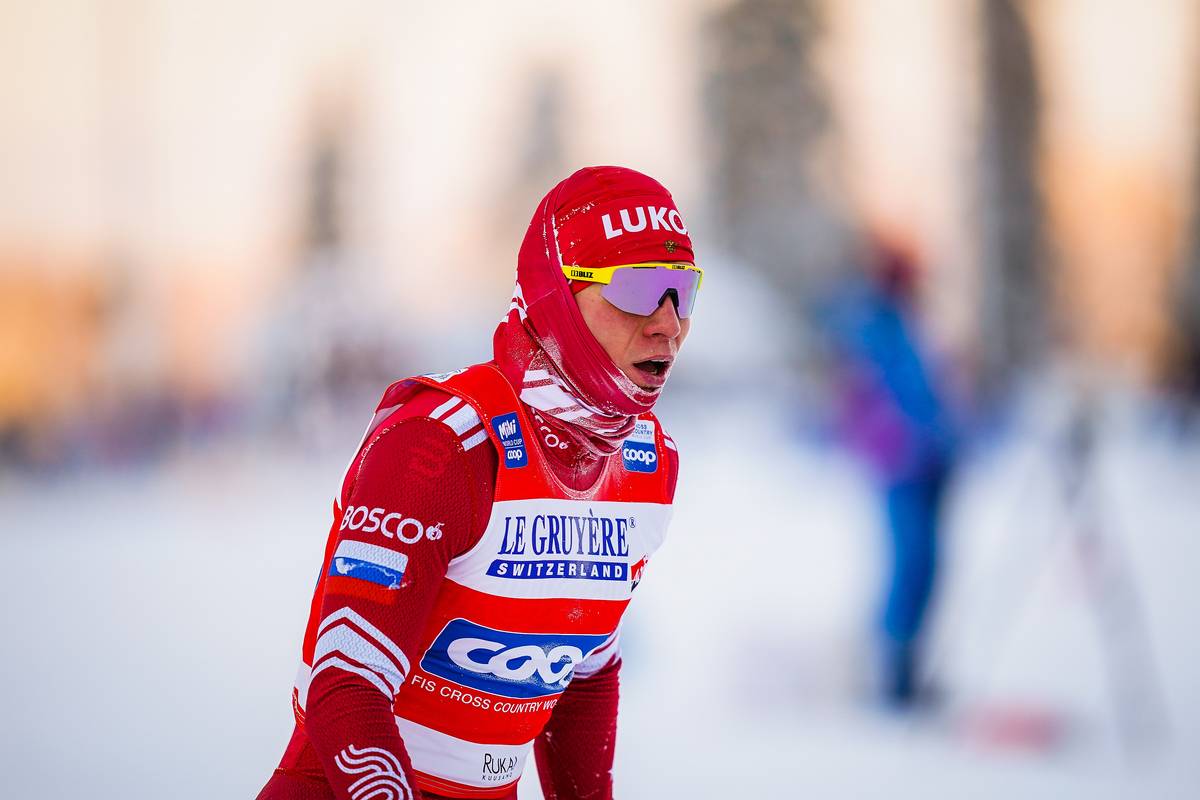
The 23-time World Cup winner showed that his recent dental woes might be behind him, as he threw down the fastest sector split from 11.1 to 13.1-kilometers and firmly secured his podium position. The Russian came into the race having won each of the last five World Cup distance events in the classic style, which was a men’s all-time record.
Klæbo, who won the distance opener in Ruka in both 2017 and 2020, was 41.7 seconds back in 9th. With his combined results from the first two stages, he currently holds the overall World Cup leader bib.

In 32nd place, Gus Schumacher (+1:42.0) was the top American finisher, sandwiched between Great Britain’s Andrew Young and Andrew Musgrave. Schumacher was just 1.1 seconds out of a scoring top-30 position, which was occupied by Canada’s Olivier Leveille.
“Gus was quite happy, quite content with his race,” said head coach Matt Whitcomb. “A long ways ahead of where he was last year on this day.”

Whitcomb said the focus going into Ruka was more on process-based results, and he is pleased with Schumacher’s current status in terms of general fitness and racing.
“I think [Gus is] just encouraged to know that he’s where he should be right now, and is excited about tomorrow.”
The neighbors to the north had a fine showing, led by Cyr in 11th (+52.3), Russell Kennedy in 27th (+1:34.8), and Leveille in 30th (+1:40.9).

“Today was a great day for the team. We all have had a good training season and it’s sweet to build this confidence early in the season and know you have done the right things,” Kennedy wrote in a post-race email.
The 30-year old Russell Kennedy has been encouraged by his early season results.
“It’s always hard with these early season races because you don’t have the confidence in your fitness yet. So it helped me to know I had raced fast earlier this season in Muonio,” he said, noting that he felt lacking in fitness during the second lap but was able to recover for a strong final loop.
“Our techs gave us really good skis and I was able to use them well. Very excited for the day and stoked for tomorrow!”
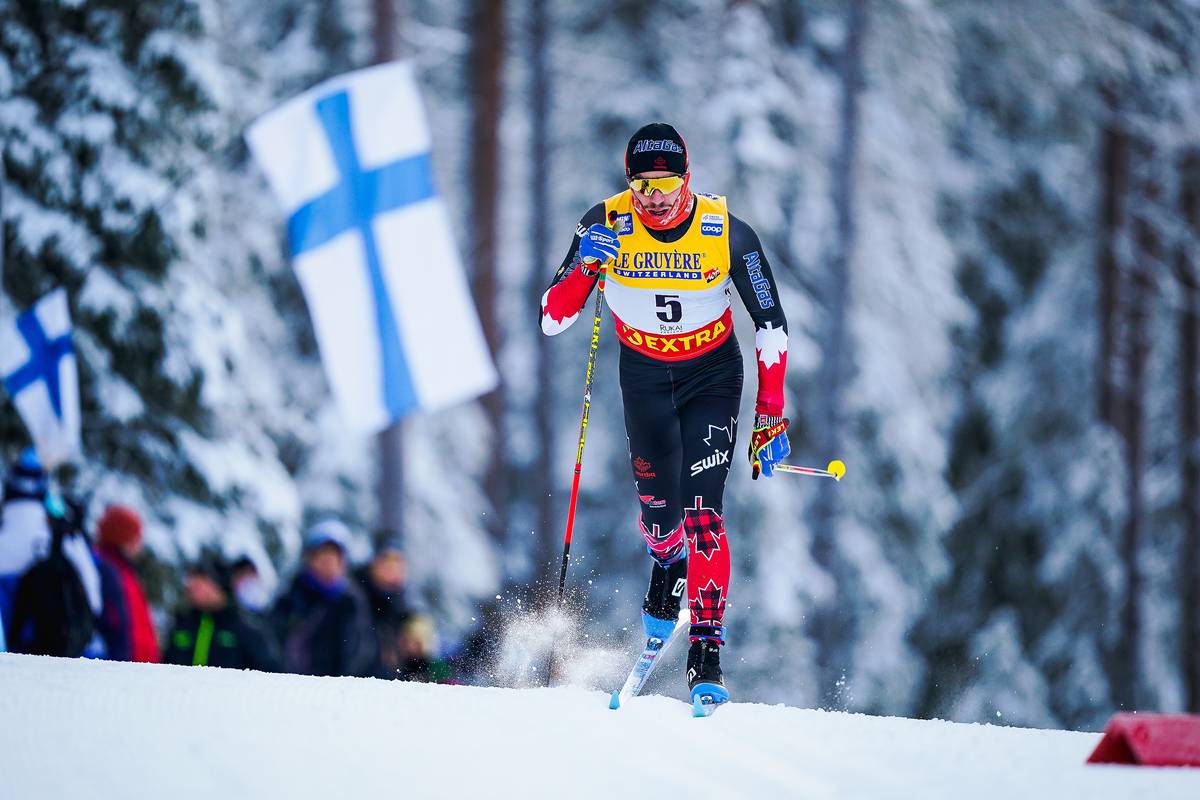
Antoine Cyr’s previous best came last year in a 15-kilometer classic in Engadin, when he placed 21st. The 23-year-old hails from Gatineau, QC, home to an extensive cross-country trail system where Cyr grew up skiing.
Whitcomb was thrilled to see the North American comrades race well, too.
“They’re sort of our second family over here a little bit,” he said, elated by the opportunity to speak to Canada’s successes. “So exciting to see three men in the top 30. Antoine Cyr — just a huge race — so fun to watch. To hear the noise coming out of the Canadian truck after the race is super cool. Very happy for our northern neighbors.”
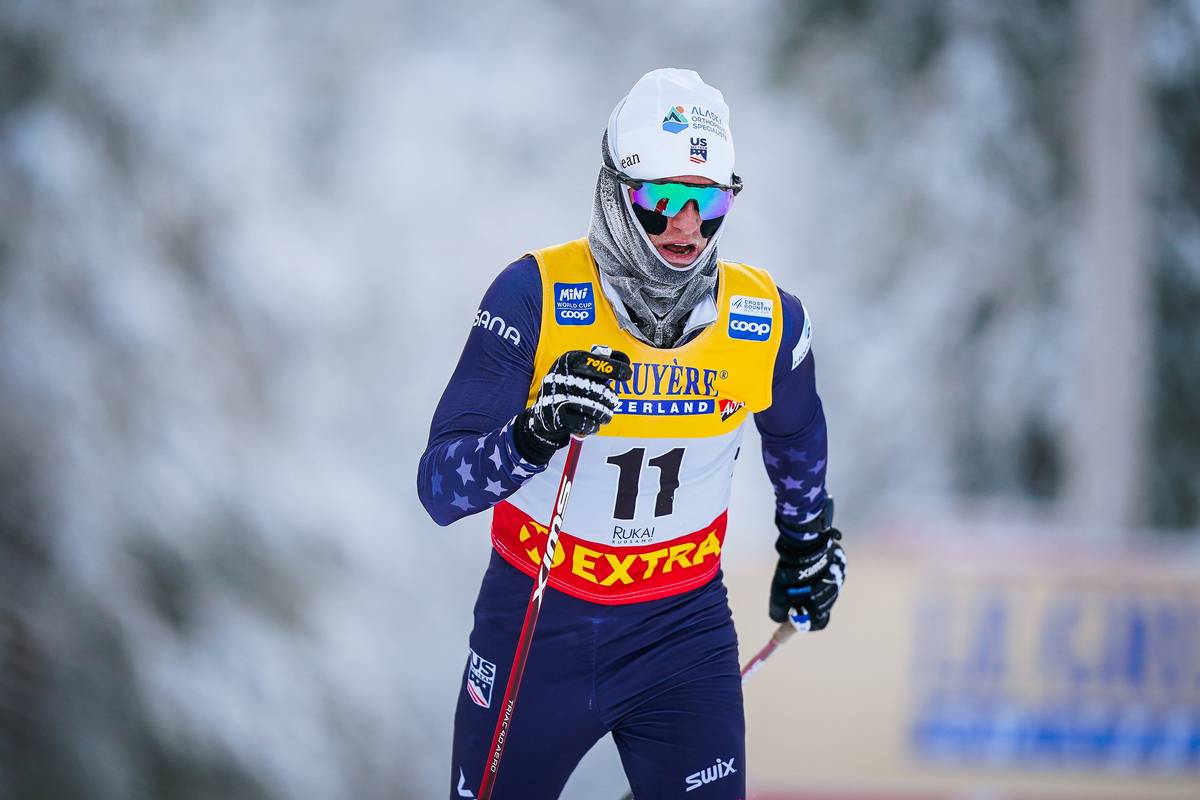
David Norris was the second American, placing 51st (+2:20.8). Zanden McMullen was the 8th U23 athlete to come through, placing 55th overall (+2:29.7). Luke Jager, who earned 13 points on Friday from his 18th place finish in the sprint, finished in 60th (+2:42.4), two places ahead of teammate Ben Ogden in 62nd (+2:46.6). Hunter Wonders rounded out the American contingent in 67th (+2:53.4).
Whitcomb said the sentiment for many of the men’s team members was that they were “going as hard as they could, but couldn’t go as hard as they needed to.”
“That’s fairly typical this time of year and sometimes also on really cold days,” he said. “We just need some hard efforts. It’s starting to feel normal but we’re just not there yet.”
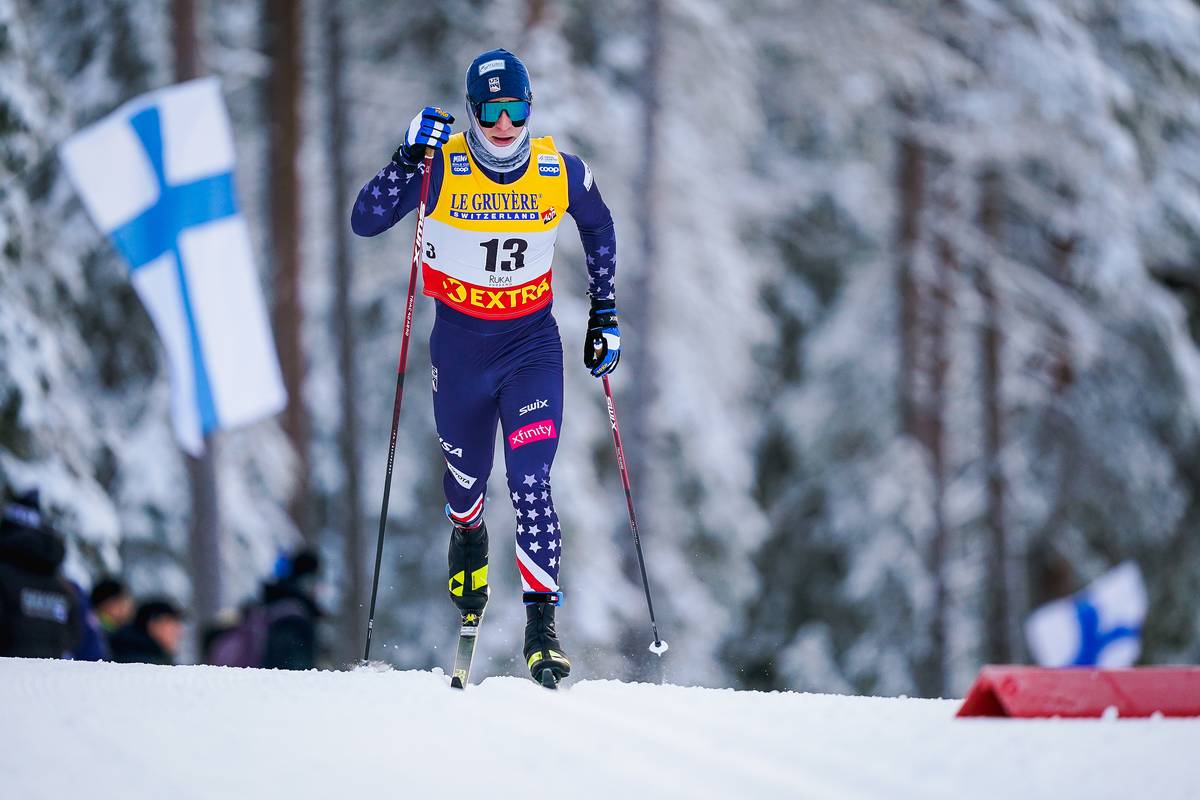
Still, he and the rest of the team are optimistic about the opportunity presented by tomorrow’s pursuit skate.
“We have a lot of people looking for more.”
Full audio from post-race conversation on both the men’s and women’s performance in Ruka.



